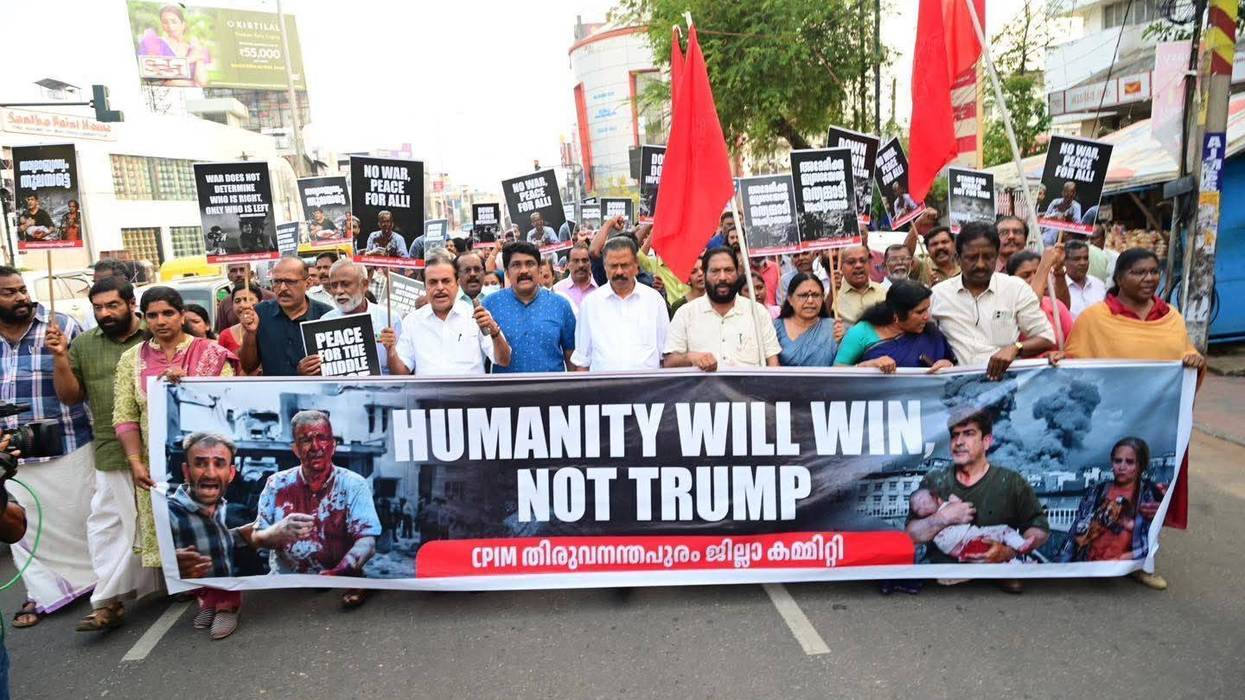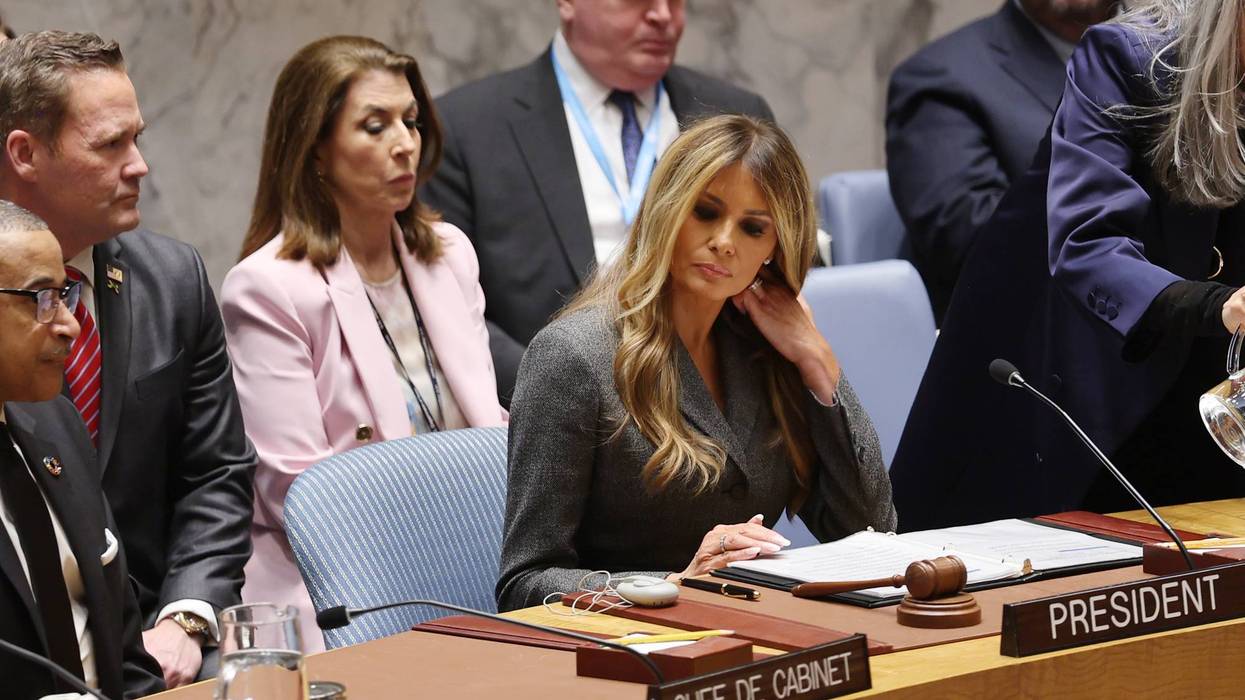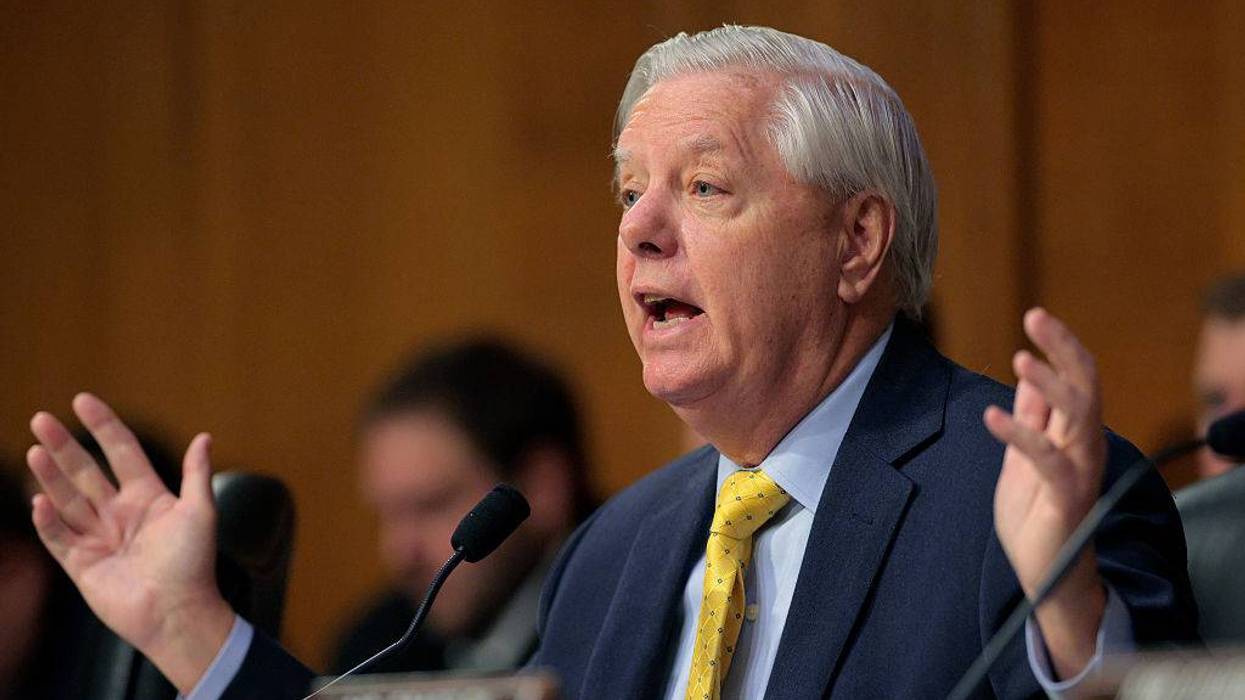June, 25 2012, 12:00am EDT

Supreme Court Lets Unlimited Money Stand, Ignores Extensive Record of Corruption
Brennan Center Submitted Amicus Brief Urging Court to Uphold Montana Election Law, Revisit Citizens United
WASHINGTON
The U.S. Supreme Court today, by a 5-4 vote, struck down Montana's 100-year-old ban on corporate election spending -- without even allowing full briefing or argument in the case. The decision reverses a Montana Supreme Court decision, which upheld the law due to the state's dramatic history of corruption.
In May, the Brennan Center submitted a friend-of-the-court brief urging the Court to uphold the law, and use the case to revisit the disastrous Citizens United ruling, which opened the door to unlimited spending in American elections. The brief, submitted on behalf of the Center and nine constitutional law professors in American Tradition Partnership v. Bullock, argued that Citizens United is untenable in light of the dominant role now being played in U.S. elections by super PACs and other outside groups.
"The 2012 elections make one thing clear: unlimited spending by super PACs and secretive nonprofits is corrupting our political process and threatens to swamp our democracy," said Adam Skaggs, senior counsel in the Brennan Center's Democracy Program. "Increasing numbers of Americans believe our government is bought and paid for by special interests and that their votes don't matter. By not taking this case, the Court missed a critical opportunity to rein in some of the worst excesses of Citizens United, and other rulings, that created this super PAC mess."
Montana banned corporate election spending for more than 100 years as a result of a dramatic history of efforts by big companies to capture the state government. The state of Montana compiled an extensive and powerful factual record that demonstrated how unlimited corporate spending previously held the state hostage to mining companies and still poses severe threats to Montana's elections and government. For the Court to strike down the state's anti-corruption law without even reviewing that record is a serious mistake.
By reversing the Montana court and not hearing the case, the Supreme Court also ensures that super PACs and other outside groups will continue to play a dominant role in U.S. elections.
In Citizens United, the Court said that, based on the facts before it, "independent expenditures, including those made by corporations, do not give rise to corruption or the appearance of corruption." Lower courts extended this decision, reasoning that if outside spending cannot lead to corruption, then there is no legitimate basis for restricting how much can be donated to outside groups. This created super PACs, which can accept unlimited donations from corporations, unions, and individuals, and then spend those funds to support specific candidates.
"Montana's experience, like considerable experience elsewhere since the Court's decision in Citizens United, casts grave doubt on the Court's supposition that independent expenditures do not corrupt or appear to do so," wrote Justice Stephen Breyer in dissent.
The substantial evidence compiled in recent months shows that significant outside spending, by super PACs and other groups, creates a very real risk of corruption and the appearance of corruption.
A few troubling examples:
- A super PAC dedicated to Newt Gingrich's election received almost all of its money from casino owner Sheldon Adelson and his family, who donated more than $20 million. Now that Gingrich is out of the race, Adelson has given $10 million to Romney's super PAC and a source close to Adelson says his future donations may be "limitless."
- Presidential candidates and their campaign staff appear at their super PACs' fundraising events and solicit funds for them, but these activities are still considered "independent" under the existing legal scheme. This defies common sense: candidates even refer to specific super PACs as "my super PAC."
- Super PACs have raised more than $234 million and have spent more than $131 million to influence federal election results -- five months from the general election. In total, outside groups have already spent roughly $163 million on federal campaigns, double the amount spent in the same period in 2008.
Although the Court missed a chance to undo some of the damage caused by Citizens United, the Brennan Center will continue working to correct that mistake, partnering with legal scholars and others to develop policies that put voters back in charge of elections.
"To truly reform our elections, we must counter the power of big money in politics," said Michael Waldman, president of the Brennan Center. "We must adopt a small donor public financing system so that the voices of regular voters matter as much as fat-cat donors. We need to modernize voter registration to add more than 50 million eligible Americans to the rolls. And state and federal governments must pass disclosure laws to help guard against corruption that could result from political spending."
Read the Brennan Center's research on New York City's successful public financing system and our proposal to modernize voter registration. See our Election 2012 page for frequent updates on all voting rights and money in politics news.
To set up an interview, please contact Erik Opsal at erik.opsal@nyu.edu or 646-292-8356.
The Brennan Center for Justice is a nonpartisan law and policy institute. We strive to uphold the values of democracy. We stand for equal justice and the rule of law. We work to craft and advance reforms that will make American democracy work, for all.
(646) 292-8310LATEST NEWS
People Across Global South Condemn 'Imperialist' US-Israeli War on Iran
"No to war, no to regime change, no to oppression," said one South African labor federation.
Mar 03, 2026
People, groups, and governments across the Global South this week condemned the US-Israeli war on Iran, which one prominent international progressive organization slammed as "devoid of any legal justification."
The attack on Iran sparked large protests in countries including Bangladesh, Brazil, India, Indonesia, Iraq, Malaysia, Nigeria, Pakistan, South Africa, and Turkey, with demonstrators taking to squares and streets to condemn what many called a war of imperialist aggression waged by US President Donald Trump and Israeli Prime Minister Benjamin Netanyahu—who is wanted by the International Criminal Court (ICC) for alleged crimes against humanity and war crimes in Gaza.
In South Africa—which is leading a genocide case against Israel at the International Court of Justice (ICJ)—labor, leftist, student, and Muslim groups are among those denouncing the war.
The South African Federation of Trade Unions (SAFTU) issued a statement Tuesday proclaiming, "No to war, no to regime change, no to oppression."
"History has taught the global working class a bitter lesson: So-called 'interventions' in the name of democracy have left behind destruction, instability, and suffering for ordinary people, never liberation," SAFTU asserted. "From Iraq to Libya, from Syria to countless other theaters of intervention, it is workers and the poor who pay the highest price."
"The future of Iran belongs to its people, not to Washington, not to Tel Aviv, and not to foreign intelligence agencies," the federation stressed.
In Pakistan, at least 23 people were killed during demonstrations across the country on Sunday, including 10 protesters outside the US consulate in Karachi. US Marines reportedly opened fire on a crowd of people who attempted to storm the facility. Eleven others were killed in the northern city of Skardu, where people set a United Nations office ablaze. Two people were also slain in capital Islamabad.
At least nine people have been killed and 50 injured in violent clashes between police and protesters at the US consulate in Karachi, Pakistan.
Hundreds of people had gathered to protest the killing of Iran’s Supreme leader Ali Khamenei in US-Israeli strikes on Tehran.
Clashes… pic.twitter.com/1QIeRjhL8M
— Channel 4 News (@Channel4News) March 1, 2026
The Progressive International (PI) cabinet published a statement condemning the war "in the strongest possible terms."
"The assault once again exposes the true character of US diplomacy," the group said. "Indirect talks between Tehran and Washington—mediated by Oman—were little more than a screen behind which the Trump administration coordinated an agenda of [a] 'major combat operation' under the banner of ‘Operation Epic Fury.’"
"Trump has been clear: This is a regime change offensive—devoid of any legal justification let alone authorization," the PI cabinet continued. "Trump has framed these strikes as 'preemptive,' necessary to eliminate 'imminent threats' and to defend national security. Yet Iran has made no immediate threats to the US. On the contrary, it is a long-standing ambition of the US and Israel to wage war on Iran—the lethal consequences of which will be borne by its people."
"Imperialist war does not liberate peoples—it subjugates them," the group added. "The evidence is found in the ruins of Gaza, Baghdad, and Tripoli, where bombs leveled cities and 'democracy promotion' left ashes in its wake."
Siphamandla Zondi, a professor of politics at the University of Johannesburg in South Africa, told the Guardian that “this is a war of domination and subordination, therefore it has imperialist undertones and motives" and "makes the world unsafe for all of us.”
The International Migrants Alliance (IMA) issued a statement Monday calling the attack "against international law."
"The bombing in Iran has killed hundreds of people, most of them are children and civilians," the group said. "The aggression is part of the Israel-US renewed war to dominate the West Asia region and plunder their resources... For decades, the United States has armed, funded, and protected Israel’s military actions while destabilizing West Asia through sanctions, interventions, and war. The result is endless violence, displacement, and suffering for ordinary people."
"The ongoing attacks will create new waves of refugees," IMA added. "Families are forced to flee across borders that are increasingly militarized. Imperialist wars create a brutal cycle of forced migration: People are driven from their homes, safety, and future, only to face criminalization, detention, or exploitation as migrants and refugees abroad."
Indian-born academic Amitav Acharya, author of The Once and Future World Order: Why Global Civilization Will Survive the Decline of the West, said in an interview with the Guardian that “many countries in the Global South are going to look for a coalition of powers that will stand up to the United States, as the United States is seen as so aggressive, so imperial."
Protests across India against Khamenei’s killing https://aje.news/nbir8t
[image or embed]
— Al Jazeera English (@aljazeera.com) March 2, 2026 at 12:00 PM
That sentiment was echoed across the developing world. In Brazil, the Socialism and Liberty Party (PSOL) said: "Trump is a threat to the world. This is a criminal violation of Iranian sovereignty and international law."
"To justify the war, the United States lies by stating that Iran threatens the American people and the world," the party continued. "We already know this story: The 'weapons of mass destruction' of Iraq... have never been found. Trump invades Iran to defend American neocolonial interests and to give a message to the world that the American government does not accept the existence of independent countries in the world system."
"Once again, US imperialism and Israeli Zionism elect the path of war and barbarism, bombing civilian facilities and killing innocents," PSOL added. "We demand an immediate end to the bombing and express our total solidarity with the Iranian people."
Keep ReadingShow Less
After US-Israel Operation Kills 180undermin Girls in Iran, Melania Trump Chairs UN Session on Children in Conflict
"For the United States, ‘protecting children’ and ‘maintaining international peace and security’ clearly mean something very different from what the UN Charter provides,” said the Iranian ambassador to the UN.
Mar 03, 2026
As the families of an estimated 180 schoolchildren and staff members killed in an Israeli attack on a girls' school in southern Iran mourned on Monday, first lady Melania Trump presided over a United Nations Security Council meeting where the impact her husband's military operations in the Middle East was briefly addressed—but only in regard to the first lady's pet cause, children and technology.
Trump spoke generally about children living in or fleeing conflict as she opened a meeting on "Children, Technology, and Education in Conflict," saying the US "stands with all children throughout the world."
But the meeting was held as the US Department of Defense and Israeli officials refused to acknowledge what had been widely reported: On Saturday, as the US and Israel began launching airstrikes across Iran despite diplomatic talks that had recently been making progress, Israel struck the Shajareh Tayyebeh girls' school in Minab as children gathered there for the school day.
The building was destroyed and the roof collapsed, killing at least 180 people, according to PBS NewsHour correspondent Leila Molana-Allen—the majority of whom were girls between the ages of 7 and 12. Nearly 100 people were also injured.
An Al Jazeera investigation on Tuesday found that the strike—which the Trump administration and the Israel Defense Forces claimed they were unaware of—was likely a "deliberate" attack, based on satellite imagery compiled over more than 10 years, video clips, news reports, and official Iranian statements.
The outlet noted that the southeastern region where Minab is located is a hub for the Iranian Revolutionary Guard Corps naval forces. The school that was hit was part of a broad network of institutions that educate the children of IRGC members.
The Euro-Med Human Rights Monitor emphasized in a statement that "allegations regarding the presence of military facilities elsewhere in Hormozgan Province do not alter the school’s civilian character or justify targeting it."
"Any deliberate attack on a school or on civilians, as well as any indiscriminate or disproportionate attack that violates the principles of distinction and proportionality, constitutes a grave breach and may amount to a war crime where intent to target the school is established or where the attack is indiscriminate or disproportionate," said the group on Sunday. "The military attack on Iran constitutes an act of aggression and violates the UN Charter, which prohibits the threat or use of force against the territorial integrity or political independence of any state."
The United Nations Educational, Scientific, and Cultural Organization (UNESCO) also said the bombing "constitutes a grave violation of the protection afforded to schools under international humanitarian law."
"Attacks against educational institutions endanger students and teachers and undermine the right to education," said the agency.
Ahead of the UN Security Council meeting led by the first lady, Iranian Ambassador to the UN Amir Saeid Iravani said it was "deeply shameful and hypocritical" for the US to convene a summit on protecting children in conflict as its joint strikes with Israel have killed close to 800 civilians across Iran in recent days.
“For the United States, ‘protecting children’ and ‘maintaining international peace and security’ clearly mean something very different from what the UN Charter provides,” said Iravani.
During the meeting, Rosemary DiCarlo, the UN undersecretary for political and peacebuilding affairs, noted that the attacks on Iran have underscored how children are impacted by conflict, specifically pointing to the shifts to remote learning that have been made in countries where US military bases are located, such as Israel, the United Arab Emirates, Bahrain, and Oman.
About the strike on the school in Minab, DiCarlo said, “United States authorities have announced that they are looking into these reports.”
The stated goal of the meeting—protecting children's access to education in conflict zones—has also been undermined by President Donald Trump.
As the Associated Press reported, the UN Office of the Special Representative of the Secretary General for Children in Armed Conflict was among the UN offices that have suffered funding cuts under the Trump administration, with the White House withdrawing US support for its work in January.
UNESCO and the UN Children's Fund have also faced drastic funding reductions.
The first lady's status as chair of the meeting on children in conflict, said UN diplomat Mohamad Safa, "while the US and Israel killing children in Lebanon and Gaza, and murdered 165 schoolgirls in Iran, is the most hypocritical thing we have seen in the history of the Security Council."
Trump led the session the same day that Democracy for the Arab World Now called for an emergency General Assembly session to "declare the assault a war of aggression in violation of the UN Charter and to demand the immediate cessation of all hostilities.”
Keep ReadingShow Less
Damning CNN Supercut Exposes GOP Doublespeak About Trump's Iran War
"To Republicans in Congress: This is a war," said MS NOW host Joe Scarborough.
Mar 03, 2026
CNN on Monday aired a montage of Republican lawmakers and Trump administration officials that exposed major inconsistencies in how they discuss the unprovoked US-Israel war against Iran.
The supercut began with President Donald Trump on Saturday morning acknowledging that "we may have casualties" in the conflict with Iran because that "often happens in war."
The video then showed Sen. Lindsey Graham (R-SC), who told NBC's "Meet the Press" on Sunday that "I don't know if this is technically a war."
CNN put together a montage of conflicting messages from Republicans and administration officials on whether or not we’re in a war. pic.twitter.com/jJjNc85Buw
— Acyn (@Acyn) March 3, 2026
It then cut to a clip of Defense Secretary Pete Hegseth on Monday giving a news conference in which he said, "We didn't start this war, but under President Trump, we are finishing it."
The video went next Sen. Markwayne Mullin (R-Okla.), who declaratively told CNN on Monday that "this isn't a war," before cutting back to Hegseth saying, "We set the terms of this war, from start to finish."
Next, Rep. Brian Mast (R-Fla.), was shown telling CNN Saturday that "I don't think I don't think anybody should classify this as war," before cutting back to Hegseth saying, "War is hell, and always will be."
Reacting to the montage, CNN host Abby Phillip said, "It does seem like we're in a war."
MS NOW host Joe Scarborough, a former GOP congressman from Florida, reposted the CNN video and urged elected Republicans to be honest with US voters.
"To Republicans in Congress: This is a war," he wrote. "Just ask the President."
Keep ReadingShow Less
Most Popular


